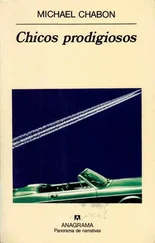Michael Chabon - Summerland
Здесь есть возможность читать онлайн «Michael Chabon - Summerland» — ознакомительный отрывок электронной книги совершенно бесплатно, а после прочтения отрывка купить полную версию. В некоторых случаях можно слушать аудио, скачать через торрент в формате fb2 и присутствует краткое содержание. Жанр: unrecognised, на русском языке. Описание произведения, (предисловие) а так же отзывы посетителей доступны на портале библиотеки ЛибКат.
- Название:Summerland
- Автор:
- Жанр:
- Год:неизвестен
- ISBN:нет данных
- Рейтинг книги:3 / 5. Голосов: 1
-
Избранное:Добавить в избранное
- Отзывы:
-
Ваша оценка:
- 60
- 1
- 2
- 3
- 4
- 5
Summerland: краткое содержание, описание и аннотация
Предлагаем к чтению аннотацию, описание, краткое содержание или предисловие (зависит от того, что написал сам автор книги «Summerland»). Если вы не нашли необходимую информацию о книге — напишите в комментариях, мы постараемся отыскать её.
Summerland — читать онлайн ознакомительный отрывок
Ниже представлен текст книги, разбитый по страницам. Система сохранения места последней прочитанной страницы, позволяет с удобством читать онлайн бесплатно книгу «Summerland», без необходимости каждый раз заново искать на чём Вы остановились. Поставьте закладку, и сможете в любой момент перейти на страницу, на которой закончили чтение.
Интервал:
Закладка:
When Ethan and his father had arrived on Clam Island, they had chosen this house, knowing nothing about its sad history, mostly because Ethan’s dad had been so taken with the glass and cinder-block hulk of the old Okawa Farm strawberry packing shed. It had wide, tall doors, a high ceiling of aluminium and glass, and ample space for all of Mr. Feld’s tools and equipment and for the various components of his airships, not to mention his large collection of cardboard boxes.
“It’s got to be in one of these,” said Mr. Feld. “I know I would never have thrown it away.”
Ethan stood beside his father, watching him root around in a box that had long ago held twelve bottles of Gilbey’s gin. It was not one of the boxes left over from their move to Clam Island, which were all stamped MAYFLOWER, with a picture of the Pilgrims’ ship. There were plenty of those still standing around, in stacks, up at the house, corners crisp, sealed with neat strips of tape. Ethan tried never to notice them. They reminded him, painfully, of how excited he had been at the time of the move; how glad to be leaving Colorado Springs, even though it meant leaving his mother behind forever. He had been charmed, at first, by the sight of the little pink house, and it was enchanting to imagine the marvellous blimp that was going to be born in the hulking old packing shed. He and his father had rebuilt the shed almost entirely themselves, that first summer, with some occasional help from Jennifer T.’s father, Albert. For a while the change of light, and the feeling of activity, of real work to be accomplished, had given Ethan reason to believe that everything was going to be all right again.
It was Albert Rideout who had told Ethan, one afternoon, about the Okawas. The son, Albert said, had been one of the best shortstops in the history of Clam Island, graceful and tall, surefooted and quick-handed. To improve his balance he would run up and down the narrow lanes between the rows of strawberry plants, as fast as he could, without crushing a single red berry or stepping on a single green shoot. After the Okawas were interned, the son was so eager to prove how loyal he and his family were to the United States that he had enlisted in the Army. He was killed, fighting against Germany, in France. It was just a story Albert Rideout was telling, as they put a final coat of paint of the cement floor of the workshop, punctuating it with his dry little laugh that was almost a cough. But from that moment on, especially when Ethan looked out at the ruins of the strawberry patch, the sky over the old Okawa Farm had seemed to hang lower, heavier, and greyer than it had on their arrival. That was when the silence had begun to gather and thicken in the house.
“It’s really a softball mitt,” Mr. Feld was saying. “I played a little catcher in college, on an intramural team… hello!” From the box he was digging around in, he had already pulled the eyepiece of a microscope, a peanut can filled with Canadian coins, and a small cellophane packet full of flaky grey dust and bearing the alarming label SHAVED FISH. Like the others in the workshop, this box was tattered and dented, and had been taped and retaped many times. Sometimes Mr. Feld said that these boxes contained his entire life up to the time of his marriage; other times he said it was all a lot of junk. No matter how many times he went to rummage in them, Mr. Feld never seemed to find exactly what he was looking for, and everything that he did find seemed to surprise him. Now, for the first time that Ethan could remember, he had managed to retrieve what he sought.
“Wow,” he said, gazing down at his old mitt with a tender expression. “The old pie plate.”
It was bigger than any catcher’s mitt that Ethan had ever seen before, thicker and more padded, even bulbous, a rich dark colour like the Irish beer his father drank sometimes on a rainy winter afternoon. Partly folded in on itself along the pocket, it reminded Ethan of nothing so much as a tiny, overstuffed leather armchair.
“Here you go, son,” Mr. Feld said.
As Ethan took the mitt from his father, it fell open in his outspread hands, and a baseball rolled out; and the air was suddenly filled with an odour, half salt and half wildflower, that reminded Ethan at once of the air in the Summerlands. Ethan caught the ball before it hit the ground, and stuffed into the flap pocket of his shorts.
“Try it on,” Mr. Feld said.
Ethan placed his hand into the mitt. It was clammy inside, but in a pleasant way, like the feel of cool mud between the toes on a hot summer day. Whenever Ethan put on his own glove, there was always a momentary struggle with the finger holes. His third finger would end up jammed in alongside his pinky, or his index finger would protrude painfully out the opening at the back. But when he put on his father’s old catcher’s mitt, his fingers slid into the proper slots without any trouble at all. Ethan raised his left hand and gave the mitt a few exploratory flexes, pinching his fingers towards his thumb. It was heavy, much heavier than his fielder’s glove, but somehow balanced, weighing no more on one part of his hand than on any other. Ethan felt a shiver run through him, like the one that had come over him when he had first seen Cinquefoil and the rest of the wild Boar Tooth mob of ferishers.
“How does it feel?” said Mr. Feld.
“Good,” Ethan said. “I think it feels good.”
“When we get to the field, I’ll have a talk with Mr. Olafssen, about having you start practising with the pitchers next week. In the meantime, you and I could start working on your skills a little bit. I’m sure Jennifer T. would be willing to help you, too. We can work on your crouch, start having you throw from your knees a little bit, and—” Mr. Feld stopped, and his face turned red. It was a long speech, for him, and he seemed to worry that maybe he was getting a little carried away. He patted down the tangled yarn basket of his hair. “That is, I mean—if you’d like to.”
“Sure, Dad,” Ethan said. “I really think I would.”
For the first time that Ethan could remember in what felt to him like years, Mr. Feld grinned, one of his old, enormous grins, revealing the lower incisor that was chipped from some long-ago collision at home plate.
“Great!” he said.
Ethan looked at his watch. A series of numbers was pulsing across the liquid crystal display. He must have accidentally pushed one of the mysterious buttons. He held it out to show his father, who frowned at the screen.
“It’s your heart rate,” Mr. Feld said, pushing a few of the buttons under the display. “Seems slightly elevated. Ah. Hmm. Nearly eleven. We’d better get going.”
“The game’s not until twelve-thirty,” Ethan reminded him.
“I know it,” Mr. Feld said. “But I thought we could take Victoria Jean .”
ONE WINTER MORNING about three months after the death of his wife, Mr. Feld had informed Ethan that he was quitting his job at Aileron Aeronautics, selling their house in a suburb of Colorado Springs, and moving them to an island in Puget Sound, so that he could build the airship of his dreams. He had been dreaming of airships all his life, in a way – studying them, admiring them, learning their checkered history. Airships were one of his many hobbies. But after his wife’s death he had actually dreamed of them. It was the same dream every night. Dr. Feld, smiling, her hair tied back in a cheery plaid band that matched her summer dress, stood in a green, sunny square of grass, waving to him. Although in his dream Mr. Feld could see his wife and her happy smile very plainly, she was also somehow very far away. Huge mountains and great forests lay between them. So he built an airship – assembled it quickly and easily out of the simplest of materials, inflated its trim silver envelope with the merest touch of a button – and flew north. As he rose gently into the sky, the mountains dwindled until they were a flat brown stain beneath him, and the forests became blots of pale green ink. He was flying over a map, now, an ever-shrinking AAA map of the western United States, towards a tidy, trim bit of tan in the shape of a running boar, surrounded by blue. At the westernmost tip of this little island, in a patch of green, stood his smiling, beautiful wife, waving. It was Ethan who had eventually gone to the atlas and located Clam Island. Less than a month later, the big Mayflower van full of boxes pulled into the drive between the pink house and the ruined strawberry packing shed. Since then the shining little Victoria Jean , Mr. Feld’s prototype Zeppelina, had become a familiar sight over the island, puttering her lazy way across the sky. Her creamy-white fibreglass gondola, about the size and shape of a small cabin cruiser, could fit easily in the average garage. Her long, slender envelope of silvery picofibre composite mesh could be inflated at the touch of a button, and fully deflated in ten minutes. When all the gas was out of it you could stuff the envelope like a sleeping bag into an ordinary lawn-and-leaf trash bag. The tough, flexible, strong picofibre envelope was Mr. Feld’s pride. He held seventeen U.S. patents on the envelope technology alone.
Читать дальшеИнтервал:
Закладка:
Похожие книги на «Summerland»
Представляем Вашему вниманию похожие книги на «Summerland» списком для выбора. Мы отобрали схожую по названию и смыслу литературу в надежде предоставить читателям больше вариантов отыскать новые, интересные, ещё непрочитанные произведения.
Обсуждение, отзывы о книге «Summerland» и просто собственные мнения читателей. Оставьте ваши комментарии, напишите, что Вы думаете о произведении, его смысле или главных героях. Укажите что конкретно понравилось, а что нет, и почему Вы так считаете.












